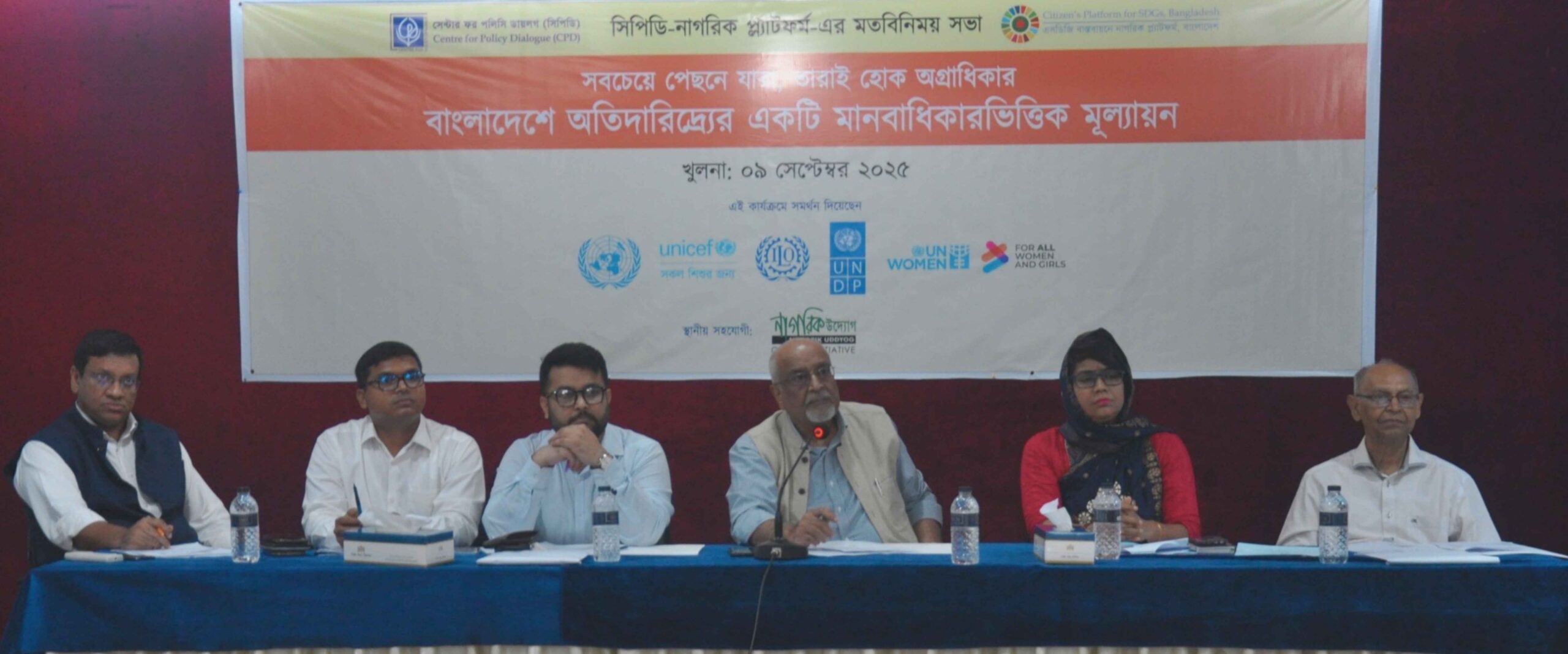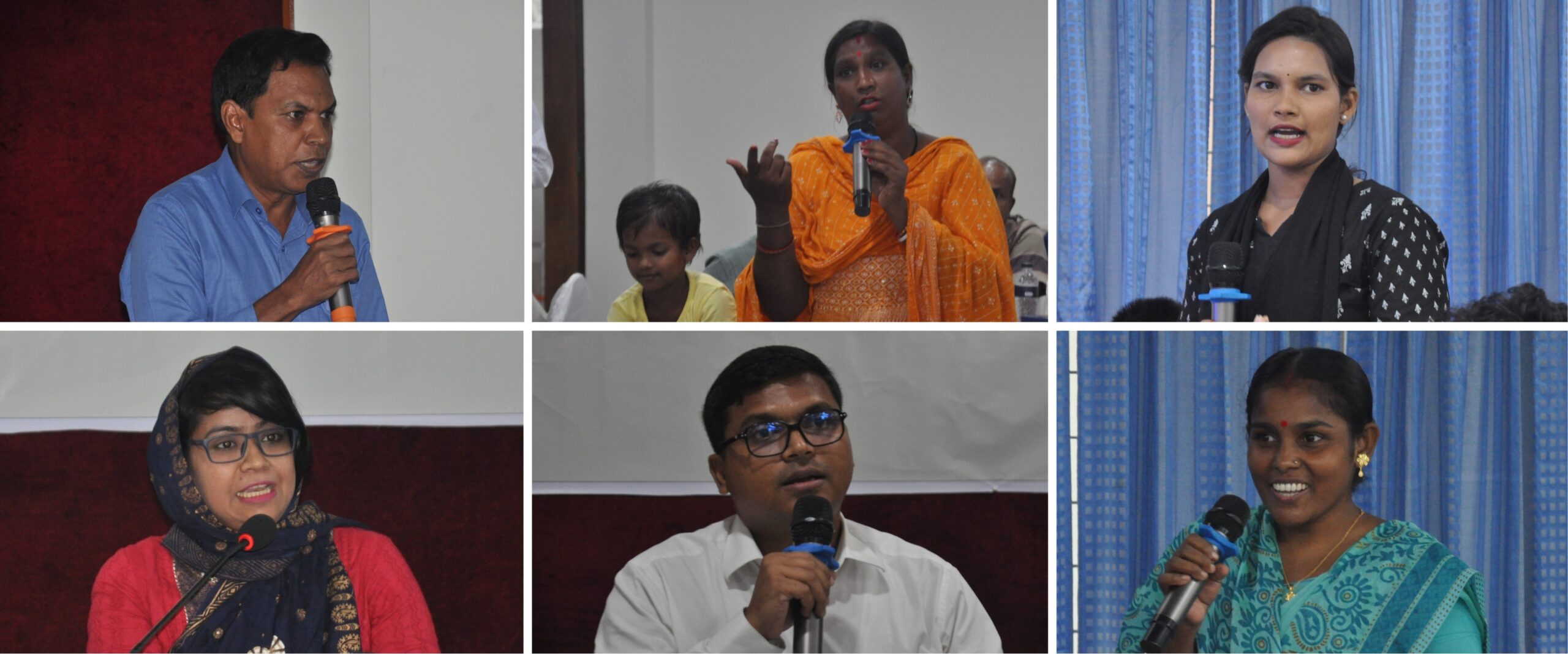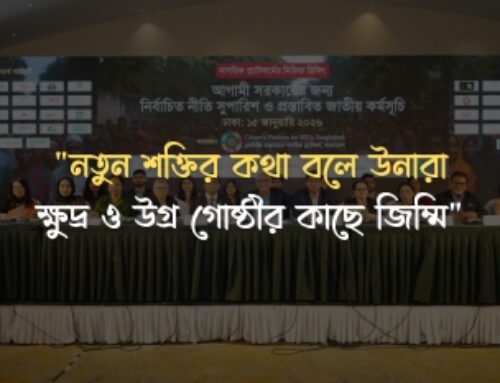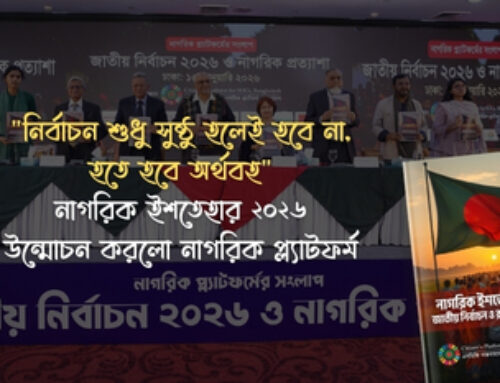
The Centre for Policy Dialogue (CPD) is carrying out a research initiative titled “Reaching the Furthest Behind the First: A Human Rights-based Approach to Confront Extreme Poverty in Bangladesh.” The study focuses on five vulnerable occupational groups who, despite being employed, continue to live below the poverty line. The aim is to explore the everyday struggles and structural barriers these workers face through a human rights and capability lens, while bringing their voices and experiences to the forefront of national policy discussions. Among these groups, Dalit sanitation workers have been identified as one of the most marginalised communities.
As part of the initiative, a multi-stakeholder consultation was held on 9 September 2025 in Khulna, jointly organised by CPD and the Citizen’s Platform for SDGs, Bangladesh. The consultation focused on presenting the research findings related to the Dalit community’s struggles and lived realities. The consultation was chaired by Dr Debapriya Bhattacharya, Distinguished Fellow, CPD and Convener, Citizen’s Platform. The preliminary findings on the Dalit community were presented by Mr Towfiqul Islam Khan, Additional Director (Research), CPD.

Participants highlighted a range of challenges faced by Dalit sanitation workers, particularly those employed through outsourcing arrangements. They noted that wage policies are often not followed, and recruitment processes within municipalities and city corporations lack transparency. Corruption in hiring was flagged as a major issue, with reports of bribes being required to secure jobs. They highlighted that these jobs are highly insecure and participants expressed concern over the increasing politicisation of the employment process.
Although the government has introduced some initiatives targeting Dalit communities, only a small number actually benefit, and many of the recipients are not even Dalits. A lack of awareness prevents many from claiming existing facilities. The absence of a centralised worker database further weakens service delivery and accountability.
Poor working conditions remained a significant concern in the discussion. Participants pointed to the lack of adequate protective gear, no provision for risk allowances or bonuses and the complete absence of maternity or pregnancy leave for Dalit women workers.
Barriers to alternative employment opportunities were also discussed. Limited access to quality education, lack of skill development and deep-rooted social stigma prevent many Dalits from pursuing other livelihoods or starting businesses. In government-run training programmes, the same individuals often re-enroll repeatedly to access stipends, excluding others from participation.
Lastly, participants drew attention to wider systemic issues. They criticised the outsourcing system for allowing institutional corruption and called for the contractor-based hiring model to be dismantled. Concerns were also raised about the lack of negotiation power among workers and insufficient institutional funding, even to ensure timely and regular salary payments.
Esteemed guests at the meeting included Ms Kohinur Jahan, Executive Magistrate and Chief Waste Management Officer, Khulna City Corporation; Mr Md. Asmat Hosen, Upazila Nirbahi Officer of Dacope, Khulna and Administrator of Chalna Municipality; and Principal Zafar Imam, President, Citizens for Good Governance (SHUJAN).
The dialogue saw active participation from representatives of the Dalit community, relevant government officials, development organisations, and civil society actors. The initiative received technical and financial support from UNICEF, the International Labour Organization (ILO), UNDP Bangladesh, the UN Resident Coordinator’s Office and UN Women Bangladesh. Local implementation support was provided by Nagorik Uddyog.





Leave A Comment